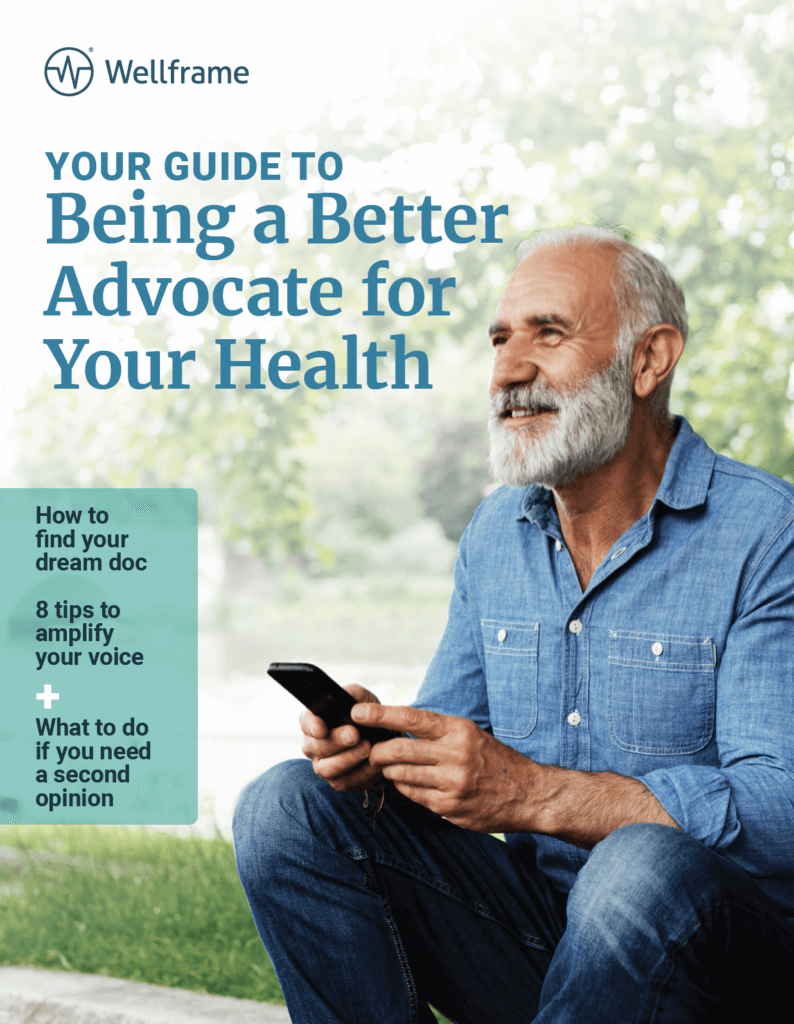6 Times you should get a second opinion
When you’re seeking help for a serious health concern, two (or more) brains can be better than one. Here are some situations where it makes sense to get a second opinion, plus tips on how to seek one.

Most of us don’t think twice about getting a second opinion for basic things like the cost of a roof repair or whether the soup needs more salt. But when it comes to something life-changing like a serious medical diagnosis, many people skip getting a second opinion. For example, one study found that just 16% of cancer patients got a second opinion after their diagnosis.
It’s understandable. A new diagnosis or treatment plan can feel overwhelming. You might want to ignore what you just heard. Or maybe you just want to get the treatment over with as soon as possible.
But hitting pause so that another doctor can confirm your diagnosis or go over your treatment options can be worth it. After all, no matter how much you like and trust your doctor, they might not be an expert in your particular illness. A Mayo Clinic study found that getting a second opinion can lower the chances of a wrong diagnosis by nearly 26%. And sometimes a second opinion is required by insurance, such as in a workers’ compensation claim.
Here are 6 times it makes sense to get a second opinion, plus tips on how to seek one.
1. You’ve been diagnosed with a rare disease.
It’s impossible for every doctor to be an expert on every health issue. That’s especially true of rare diseases like cystic fibrosis or muscular dystrophy. If you’ve been diagnosed with a very specific, or rare, health problem, seek out a specialist.
“There are conditions that are diagnosed with a complex set of variables,” says Sunil Madan, M.D. Dr. Madan is chief medical officer at Luminis Health Doctors Community Medical Center in Lanham, Maryland. “In that scenario, it’s advisable to go to a specialist who just works with those diagnoses.”
A specialist’s training is focused on treating certain conditions. They must stay up to date on their specific field. They have continuing medical education and training. As a result, they’re more likely to know about the latest and greatest therapy options. And they likely have better access to the resources you need.
2. You’ve been told you need surgery.
Sometimes surgery is necessary to solve a health issue. Other times it can be smart to explore less invasive options first. Those might include physical therapy or medication.
All surgeries come with some level of risk. So it’s important to think it through. Bringing in another medical expert can help you look at your options with a fresh eye. And they can help ensure you aren’t missing any other possible routes.
3. You’ve been diagnosed with cancer.
According to one study, when cancer is misdiagnosed, it’s the disease most likely to cause death or permanent disability. Despite how common cancer is, every case and every cancer is different. And treating cancer is complex, says Dr. Madan. Getting a second opinion might reveal new treatment options for your type or stage of cancer. That could make a big difference in your health outcome.
4. Your diagnosis or treatment plan is unclear.
Sometimes all signs point to a clear cause of your health problem, and the solution is obvious. Other times, you may have a health issue with multiple causes and treatment options. In that case, it may take more than one doctor to confirm what’s going on and pinpoint the next best steps.
It’s a good idea to seek out a second opinion if:
- You don’t have an exact diagnosis.
- There’s no specific cure for your illness.
- The treatment for your illness is experimental.
5. You have a bad feeling in your gut.
It can be tough to advocate or stand up for yourself when you’re surrounded by medical experts, especially if you don’t have any medical training yourself. But if your healthcare team plans a procedure or treatment that doesn’t sit right with you or doesn’t match what you’ve learned about your health condition, listen to your gut.
Remember: Even if you don’t have an M.D. after your name, you know your body better than anyone else. And it’s your body alone that will have to deal with the effects of the treatment. So if you have any doubts, bring them up now so you don’t regret it later. Dr. Madan suggests talking to your primary doctor first. But if that doesn’t ease your worries, seek additional advice from another pro.
6. You’ve been treated, but your symptoms haven’t gone away.
Don’t assume you’re stuck with your symptoms forever. Bringing in a second doctor may be just the thing you need to find out why you don’t feel better and what you should do next. And it’s often a choice your primary doctor will welcome. “At that point, usually there’s a conversation with the primary doctor where they would actually recommend getting a second opinion or involving a specialist,” Dr. Madan says.
How to Get a Second Opinion
The first step is to find the right provider. Start by asking your primary doctor for a referral. They are usually aware of local doctors or institutions that specialize in your condition. If you trust your primary doctor, taking their recommendation can make sense.
Another option is word-of-mouth referrals. Ask friends or family members you trust who have had similar health conditions if they have a doctor they like. Your health plan should also be able to point you toward a specialist in your network. A digital health management app like Wellframe makes it easier. You can use the app to connect with your care advocate. They can refer you to an in-network provider. Or they can check a provider’s network status.
Many health plans offer Wellframe as an added benefit. To find out if you have this digital health management app, send this short email to your human resources department.
Once you have a new doctor in mind, there’s no harm in researching them online. You can start by checking the Federation of State Medical Board’s website. Use the “DocInfo” tool to search the doctor’s name. It will show you the doctor’s:
- Education.
- Board certifications.
- State licenses. (These tell you where they are licensed to practice.)
- Any disciplinary actions against them.
You can also search for the doctor’s name on healthcare rating sites like HealthGrades.com or RateMDs.com.
Some health plans won’t pay for a second opinion unless you have a referral from your primary doctor. Check with your plan first. They may approve the cost even without a referral as long as you stay in-network.
How to choose a treatment plan
Of course, getting a second opinion is just half the battle. Once you have it, you may be faced with 2 different diagnoses or treatment plans. How do you know which to choose? Follow these steps to figure it out.
- Meet with your original doctor to talk about the second opinion.
- Ask both doctors to explain how they came to their conclusions. How did they interpret your test results? Are there any studies they can point you toward?
- Ask if both doctors would be willing to work together on your case.
- If you’re still on the fence, bring in another medical professional for a third opinion.
At the end of the day, it’s important for you to feel comfortable with both your medical provider and your treatment plan. If getting a second opinion makes that possible, don’t hesitate to ask for one. Your primary provider likely will be on the same page.
“A second opinion can sound like it has a negative connotation. But it’s often a very collaborative decision,” Dr. Madan says.
Ready to become a better advocate for your health?
Download the guide for tips on how to amplify your voice. Plus, learn how to get the most out of every doctor’s appointment.

